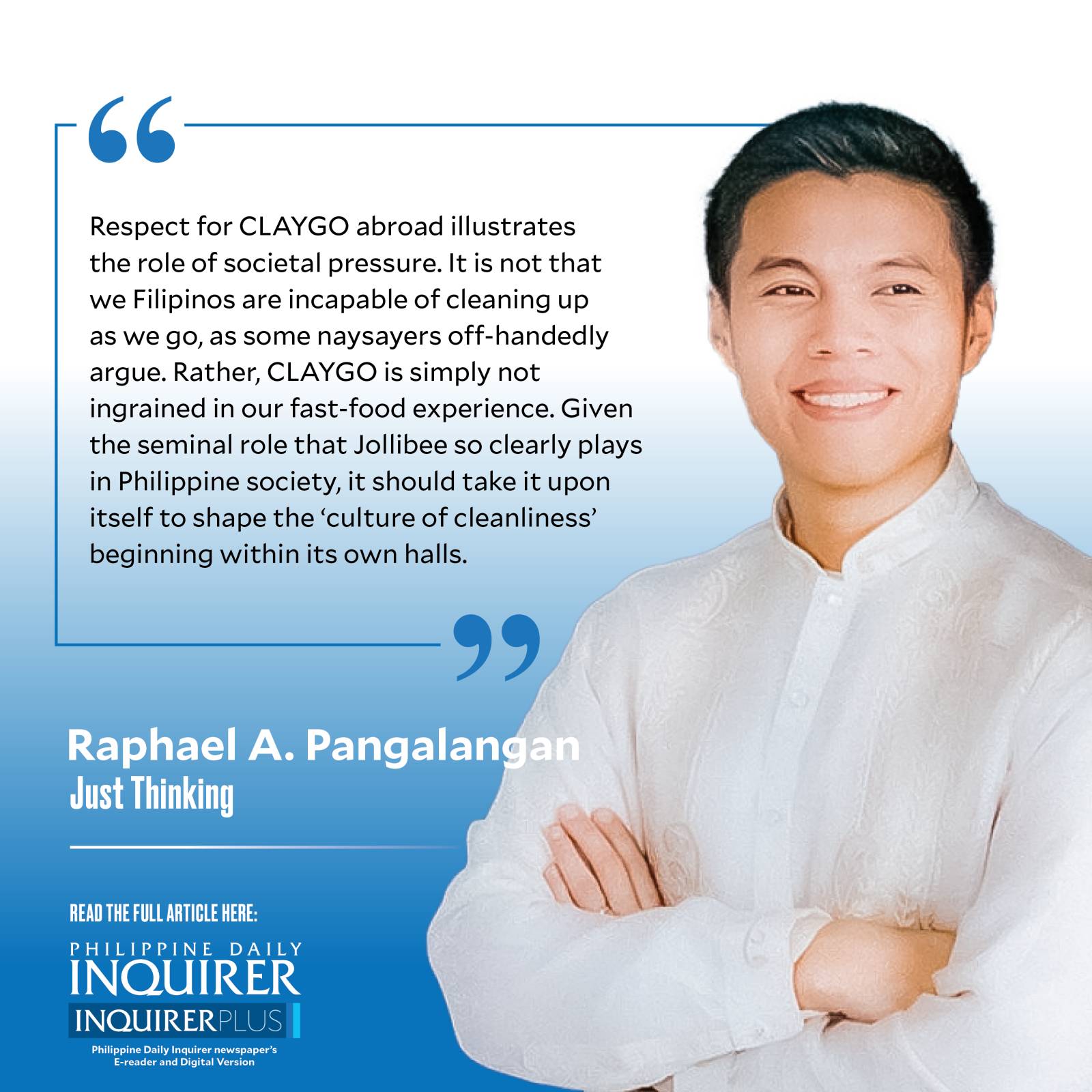Jollibee as culture shaper

For Filipinos, Jollibee is more than just a food chain. It is a paragon of Philippine flavor.
Ogling at the different combinations of value meals, we crave over its menu items as if they were homecooked. Should we order a burger or fried chicken? With a cup of steamed rice or spaghetti? Or better yet: And?
Navigating the different permutations of jolly delights is a worthwhile task for even the most skilled number cruncher. The tongue wets and the belly grumbles as our mind zeroes in on a single item tucked somewhere between Y1s and C3s. But if we were to take a pause, what we see—and in my case, experienced on countless occasions—is an interesting scene. One where American and Italian staples are sweetened for the “Pinoy” palate. The Yumburger, Chickenjoy, and Jolly Spaghetti are Philippine renditions of what was never originally ours. Yet in the halls of the oh-so-jolly bee, for some reason, they are.
At this juncture, there are various ways I can proceed with this column. I could draw parallels between Western conquest on Philippine shores, and how we, as Darwinian as we are resilient, survived by co-opting foreign creation as our own. In this way, indeed, Jollibee may be said to be a microcosm of history. As a TWAILer myself—that is, as someone who studies international law and relations from the critical lens of the “Third World”—I would be more than happy to. Perhaps I could even touch upon how language is largely a byproduct of accidents rather than something pre-designed. After all, I doubt Jollibee crew members acknowledge gender fluidity when they greet us “Ma’am/Sir.” It is likely the case that this is nothing more than a word-for-word recitation of the staff manual.
But indulge me as I guide my pen in a different direction. Indeed, Jollibee may be a phenomenon in its own right worthy of grand observations, but in Philippine hearts, minds, and bellies, its relevance is much more visceral. It is personal.
I recall exploring the streets of Barcelona when my wife and I took a pause at a local restaurant. Inside, we were approached by the service crew who politely asked: “¿Ingles o Español?” I looked at her and scanned the room. Everyone’s faces seemed somewhat familiar to me. In a million different ways, they all looked like mine.
I warmly answered: “Tagalog, puede?”My reply was greeted with the best of responses: a smile.
Apparently, the operations of the restaurant were led by an all-Filipino crew. We got to chatting, and I asked them the usual questions with heartfelt interest: How long have you been based in Spain? Are you treated well here? How long has it been since you were last home? It had been a while. She commented: “Buti na lang may Jollibee na dito, pero nasa Madrid!”
Apparently to the Filipino community in Spain, where the inaugural Jollibee was to be built was a matter of heated debate. According to my newfound friend, a survey was conducted where Filipinos across the country voiced their preference. Impassioned, she told me: “I voted for Barcelona! It’s important for Filipinos to have a taste of their culture while in Spain.”
Unfortunately for her and many others, the Philippine fast-food chain opened its doors in Madrid in 2021. But the anecdote illustrates quite well how what was once just a humble ice cream parlor in Cubao is celebrated for both cuisine and, perhaps, much more, culture. Many fond memories are built on “Ma’am/Sir” greetings and shrill cries of “Ma’am pa-void!” But the role of Jollibee does not end there. It can be so much more than just an embodiment of culture. It can be its shaper, too.
We Filipinos aren’t exactly known for “CLAYGO” or “clean as you go.” So much so that, in 2018, a video of two Koreans cleaning up after themselves at a local Jollibee went viral. Such a novelty!
After finishing our meals at the local fast-food chain, it is expected—or at the least acceptable—that we would simply leave our empty plates and used utensils on the table for someone else to clean up. It’s been, thus, argued by some that Filipinos do not have a “culture of cleanliness.” But this simply isn’t true. Because quite interestingly, when I got around to visiting Jollibee in Madrid which was, as expected, packed with Filipinos, lo and behold, the used utensils and trays were properly thrown or stored away.
Respect for CLAYGO abroad illustrates the role of societal pressure. It is not that we Filipinos are incapable of cleaning up as we go, as some naysayers off-handedly argue. Rather, CLAYGO is simply not ingrained in our fast-food experience. Given the seminal role that Jollibee so clearly plays in Philippine society, it should take it upon itself to shape the “culture of cleanliness” beginning within its own halls. It should start with the kids and encourage them to clean up after they are done eating. Give them a kid-friendly pamphlet on good practices. Heck, trumpet it as your environmental, social, and governance, and write it off as tax deduction.
In the process, you can make a difference by giving value back to a society that so clearly values you.
—————-




















